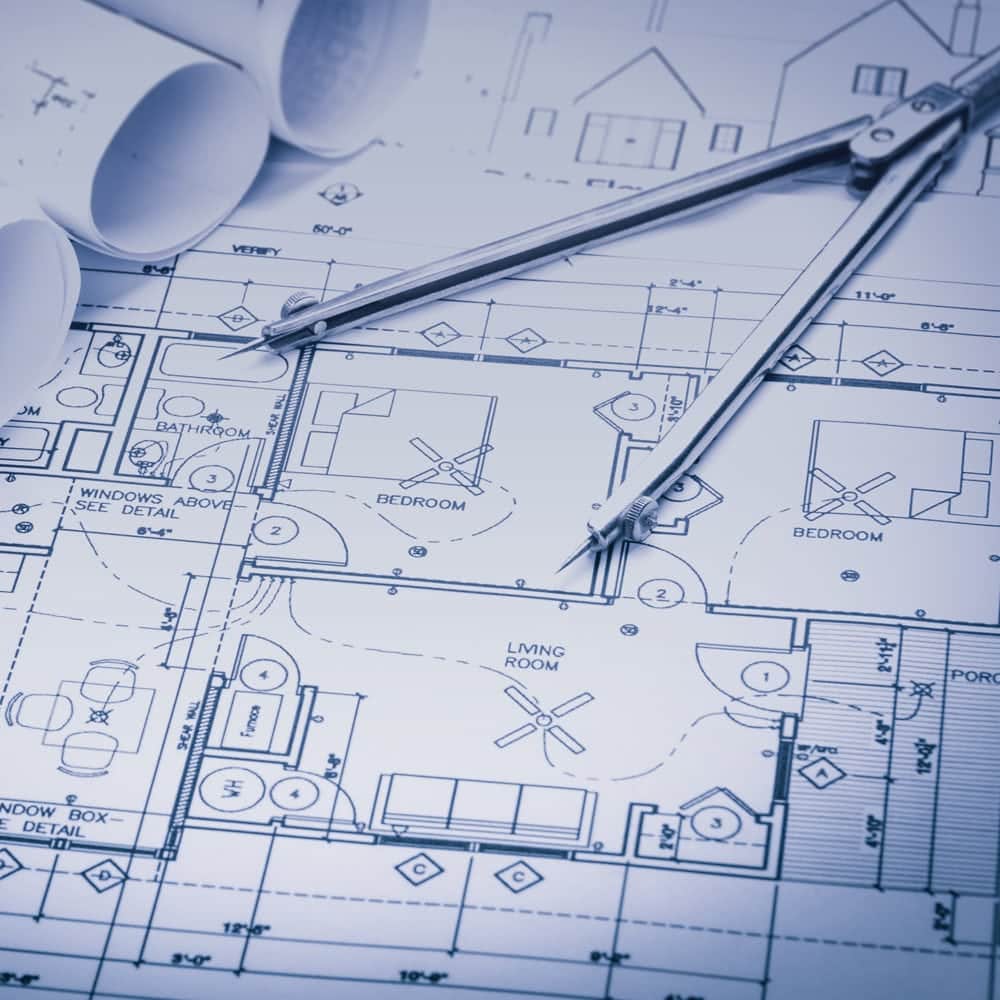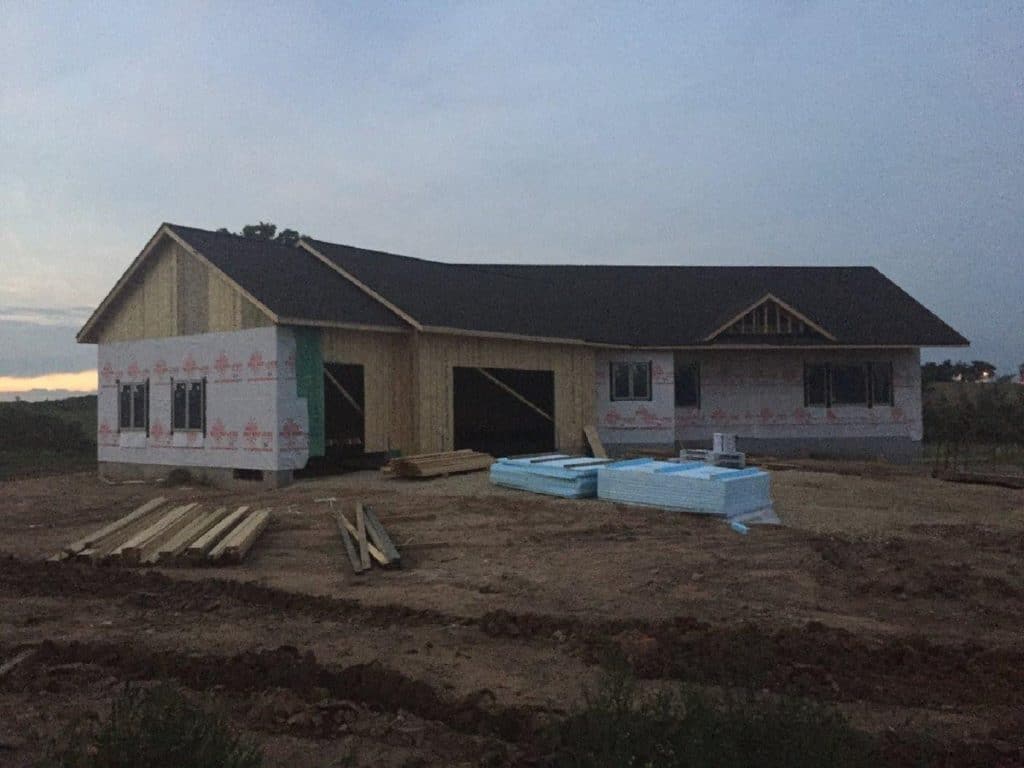The Biggest Mistakes People Make When Building a Home
As the adage goes, “Hindsight is always 20/20”. In the construction industry, no more is this true than when it comes to building a home. Some of the biggest reasons are because it’s something that someone may only do once (if at all) and because of all of the little decisions that go into making the home yours. As a construction company in business since 1979, we’ve learned a thing or two about how to make the experience as positive and stress-free as possible. Allow us to list our biggest list of no-no’s when it comes to building a home.
Shoddy House Plans:
It’s vital that you have a set of plans that clearly detail the layout of your home. Without this, you cannot get accurate estimates on labor or materials. Additionally, unclear plans can cost you down the road when a plumber thinks a sink is going in one place and the electrician places lighting in a spot that makes no sense. This can lead to scheduling conflicts, work that must be redone, etc. Who pays for this? You. 
Acting as Your Own General Contractor:
Think of a general contractor as the coach of a team. Their job is to gather bids, work with any subcontractors and make sure that the work is done correctly, within your budget and on schedule. A general contractor has connections within the industry and has solid relationships with subcontractors (plumbers, electricians, etc.). These subcontractors want to perform exceptional work for general contractors because they know that this is how they will stay in business. Subcontractors are less likely to stay on time and within budget for someone they know they have little chance of ever working with again, such as the homeowner. While on the front end, hiring a general contractor can seem like an added expense, working with a skilled professional will often keep you on schedule and within budget.
Cutting Corners on Budget:
A builder who can build your dream home $30,000 cheaper and 2 months faster than the others you bid out likely has something to hide. A builder may lowball an offer to get your business and then may tack on expenses as the project goes on. Even if extra fees aren’t accessed later, it’s likely that a significant difference in pricing also means a significant difference in the quality of materials. Do you really want to replace your home’s windows in the next five years because your builder grade ones didn’t last?
Taking a Laid Back of an Approach:
Your home is one of the biggest investments of your life. Don’t be passive. Be present when it comes to making decisions. Read and understand the contract and have a lawyer review it if necessary. Ask for copies of the company’s insurance policy because if someone gets hurt on the job site and the contractor is not insured, the homeowner can be responsible for the medical bills of the injured. Once construction has commenced it can be very costly and difficult to make changes to your plans so take time to consider what you want before getting started.
Poor Location:
Is it convenient to live near a grocery store, strip mall or 24-hour gas station? Absolutely! Have you ever heard of a realtor specifically seeking these locations out for a home buyer? No! Why? While we’re not suggesting your closest neighbor be a half hour away, the most appealing homes to future buyers are not those directly adjacent to areas like this. Busy streets and stores are not quiet or family friendly. Consider resale value before settling on a lot because it’s the cheapest around. Things like slope, water table and terrain also affect how easy it is to construct a home on a piece of land, so be sure to do your homework before buying a lot.
Building a Home That Doesn’t Make Sense For Your Neighborhood:
Before ground breaks, take a hard look at homes in the neighborhood and make sure the size of your home is similar to those in the surrounding area. The smallest and largest home in a neighborhood is often the hardest to sell. The styling of your home should also be in line with the rest of the neighborhood. A stucco home is going to stick out like a sore thumb in a neighborhood full of Victorian styled homes.
Having a Budget Without a Buffer:
It’s important to establish a budget when building a home. The budget should include a slush fund that takes into consideration unforeseen circumstances and overages because even with the best-intentioned bid, incidentals will likely still come up.
Not Planning Ahead:
Think down the road, ten or twenty years. Is there a need to add additional rooms to accommodate an expanded family or aging parents? It’s best to accommodate for incidentals when building. If you plan to retire in your home, you may want to consider the number of stairs, the width of doorways, etc. Your toddlers are going to turn into teenagers, are you okay with their bedroom being in a basement with its own entrance?
Working with the Wrong Builder:
Take some time to evaluate several builders so that you find someone who is right for you. Be sure to talk to previous clients. Find someone you connect with and who can transform your ideas into a reality. It’s also a good idea to check with websites such as the Better Business Bureau and Angie’s List to see what others have to say about these businesses. Ask potential builders to see examples of previous work both in photos and in person. Don’t forget that you’ll be dealing with the builder for a span of several months.
Cutting Corners on Budget:
A builder who can build your dream home $30,000 cheaper and 2 months faster than the others you bid out likely has something to hide. A builder may lowball an offer to get your business and then may tack on expenses as the project goes on. Even if extra fees aren’t accessed later, it’s likely that a significant difference in pricing also means a significant difference in the quality of materials. Do you really want to replace your home’s windows in the next five years because your builder grade ones didn’t last?
Hear more about the disastrous consequences of installing builder grade windows here:
